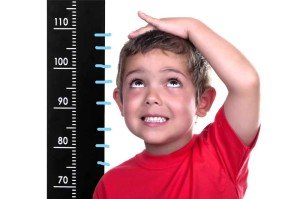The Pitfalls of Comparisons
 “You’re the only ‘you’ in world,” we assure our child, celebrating her individuality.
“You’re the only ‘you’ in world,” we assure our child, celebrating her individuality.
And yet, almost every part of her life is assessed in comparison to others–her height and weight is plotted on a growth chart, her pediatrician educates us about “typical” development, her school test scores are ranked in percentiles, her friends talk about who has lost the most teeth or who is the tallest.
In such a world, how do you help your child appreciate her unique strengths instead of focusing on how she compares to others?
Acknowledge that making comparisons is a natural human tendency. Comparing ourselves to others is the default way we assess how we are doing when there are no objective measures for self-evaluation, such as for parenting and housekeeping.
Be aware of the pitfalls of comparisons. We often compare another’s strengths with our weaknesses, so we always come up short. Even when strengths are compared to strengths, there is always someone who is better (and worse).
Understand that constant comparisons can lead to lower self-esteem and a loss of our own sense of direction—instead of doing what is best for ourselves, we make decisions based on what others are doing or valuing. Teens and tweens are particularly vulnerable to this, since peer acceptance is so important to them.
Know when comparisons are useful. For example, comparing notes with other parents can help establish consistent rules and expectations for kids who hang together; comparisons provide benchmarks for healthy child development and allow us to have winners in competitions.
Change your thinking:
- Value uniqueness.
- Express gratitude for what you have instead of wanting what others have.
- Remember what Einstein said, “Everyone Is a Genius…But if you judge a fish on its ability to climb a tree, it will live its whole life believing it is stupid.”



